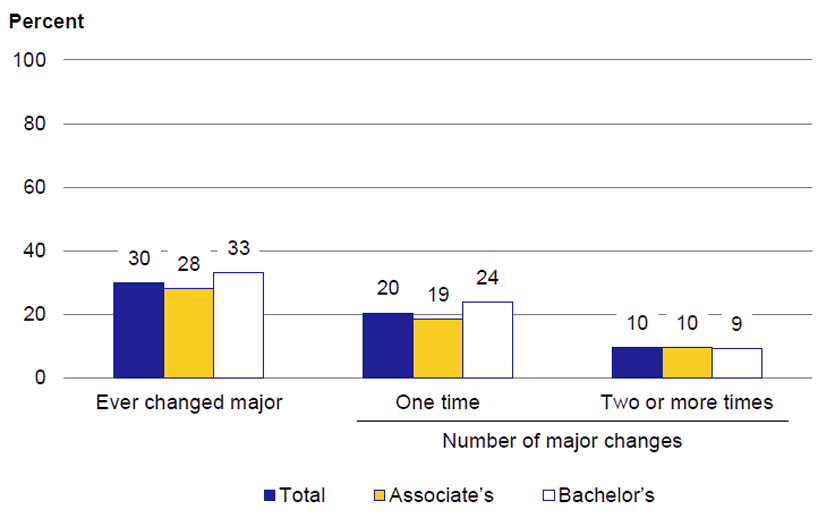Here at BYU it is quite common for students to change their major within their first two years, University Advisement Center staff Amy Soto said.
Soto, who has worked with BYU’s University Advisement Center for the past six years, assists students from the Open Major College and other BYU students in their exploration of various career paths.
When students consider changing their major, Soto recommends acquiring more information about their major path from an advisor.

“With the help of an advisor in the University Advisement Center, students can be empowered to access information and resources that they might not have otherwise considered looking into,” Soto said.
Around 30% of students have declared a change in their major within the first three years of enrollment, according to the National Center for Education Statistics. 10% of students have changed majors more than once.
“One of the most common myths that stresses students out the most that comes up with switching majors is that ‘my major will direct the rest of my life’. Unless you need a specific major to get to a specific career path, that is most likely not true,” Soto said.
Soto invites students to imagine themselves on graduation day, where they will be preparing to enter the workforce or to acquire further schooling.
Each of these paths will be easier to pursue with preparation and experiences under your belt that can prove your skills, she said.
“This tells me that while choosing your major is important to get most of what you are hoping to learn as an undergraduate, all students definitely need to engage in a variety of activities and involvements to prepare for their future. While all students are working towards graduation, and degree completion is important, there is a bigger goal that all can be working towards,” Soto said.
Lily Altom, a BYU student in the graphic design program with one more semester until graduation, has switched majors a couple times.

“It’s only convenient to be in school right now. Obviously you can study other things later but you’re already in school right now, might as well study what you want. And I’ve also kind of liked switching majors because I’ve been able to experience a lot of different classes,” she said.
After starting in the industrial design program, Altom realized it was not for her and she had to move on to something else.
Jordan Sitterud’s dream was also to do industrial design, he said, but after transferring to BYU for the major and not getting in, he ended up switching to marketing.
“It was very stressful. I felt like in industrial design it made sense for me. I had a community, I really liked the friends in that major and we had a lot of fun … but switching to marketing was like the best thing, it fit me so well and it ended up being a huge blessing,” Sitterud said.
After switching, internships and other opportunities that were not available in his previous major began to line up, he said.
“School should be serving you,” Sitterud said, “Your schooling should enable you to do the things that you truly want to do in your life.”
Having a strong sense of identity is key for all students who feel stressed about their future career and academic goals, Soto said.
“Every student needs the ability to articulate who they are. They need to know their interests, skills, values, personality features and strengths,” she said.
Soto encouraged students to try new things, meet new people and stay open to alternate possibilities when thinking about their future.
Students who might be worried about their academic and professional future can set up a meeting with one of the University Advisement Center staff here.




